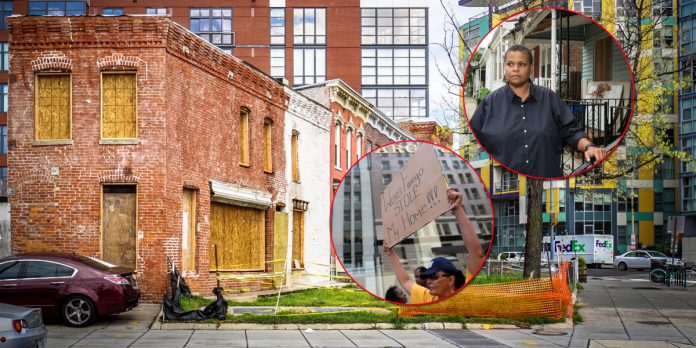Wall Street and Real Estate Exploited Anti-Housing Laws
How Wall Street and Real Estate Exploited Anti-Housing Discrimination Policies
In 1970, Janice Johnson, a Black single mother in Philadelphia, was facing eviction from an old apartment building condemned by the city. She was desperately seeking a place for her and her 8-year-old son to live, and her attempts to rent nearby apartments were coming up short. A landlord suggested she buy rather than rent a home, and just two weeks later, Johnson was approved for a Federal Housing Administration-backed mortgage loan of $5,800.
Conditions in their new home quickly deteriorated after they moved in. The sewer line broke and leaked all over the basement floor. The electricity was sporadic and faulty, the windows were nailed shut and unusable, and Johnson’s son once awoke to find a rat in his bed. But when Johnson complained to the landlord who’d recommended buying the house, he told her the problems were hers alone.

Janice Johnson’s story introduces Keeanga-Yamahtta Taylor’s new book, Race For Profit: How Banks and the Real Estate Industry Undermined Black Home Ownership. It argues that federal policies intended to end racial discrimination in housing and encourage Black homeownership actually wound up enabling predatory real estate practices.

Racism was deeply embedded in the U.S. housing market in 1970. “Restrictive clauses” in deeds that banned homes from being sold to Black people were common. Black people were barred from the Stuyvesant Town/Peter Cooper Village complex in Manhattan when it opened after World War II, and the developer, the MetLife insurance company, won a court ruling in 1947 that it had a right to discriminate because it was a private entity. Banks and the federal government routinely “redlined” neighborhoods that were predominantly Black or Latino, denying mortgage or property-improvement loans to homeowners and landlords on the grounds that those areas were bad investments.![]()
Consider supporting AMIBC™. Contribute by clicking on the advertisers and sponsors featured on AMIBC™ and please utilize them. Readers from around the world, like you, make our work possible. We need your support to deliver quality, vetted, investigative journalism – and to keep it open for everyone. At a time when factual, honest reporting is critical, your support is essential in protecting our editorial independence.
The narratives and issues impacting all Americans is tantamount to the AMIBC™ platform. Every contribution, however big or small, is valuable for our future. Make sure to join the AMIBC Founders Club to maximize the total advantage of being a subscriber.


































